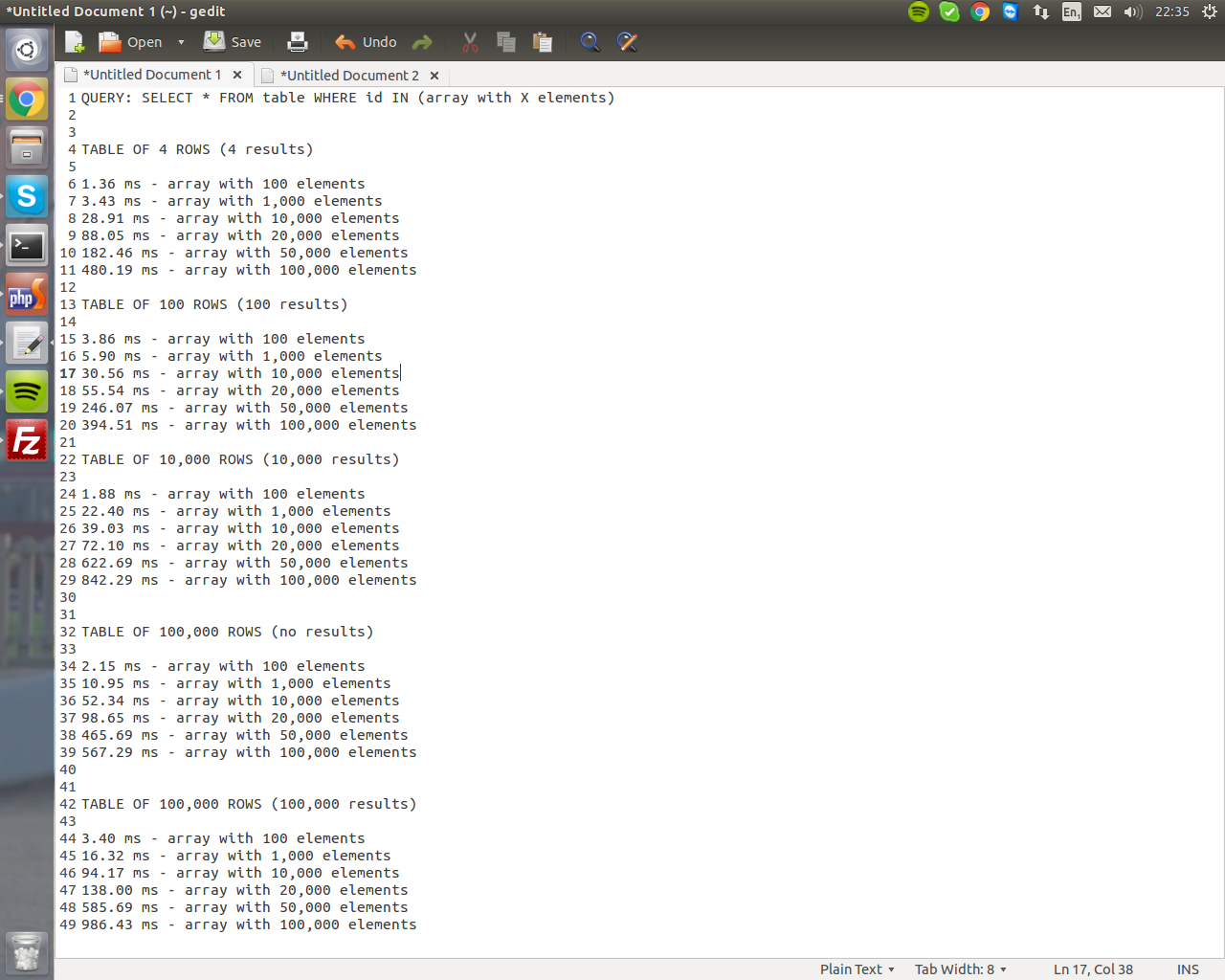As pointed out by @gregor in the previous discussion,
In your first query, get a list (with a custom query) of all the object_identity_ids (for a specific entity/class X) a user has access to.
Then, when querying a list of objects for entity/class X, add "IN (object_identity_ids)" to your query.
Matthieu, I wasn't satisfied by replying with more of conjectures (since my conjectures don't add anything valuable to the conversation). So I did some bench-marking on this approach (Digital Ocean 5$/mo VPS).
![Benchmark]()
As expected, table size doesn't matter when using the IN array approach. But a big array size indeed makes things get out of control.
So, Join approach vs IN array approach?
JOIN is indeed better when the array size is huge. BUT, this is assuming that we shouldn't consider the table size. Turns out, in practice IN array is faster - except when there's a large table of objects and the acl entries cover almost every object (see the linked question).
I've expanded on my reasoning on a separate question. Please see When using Symfony's ACL, is it better to use a JOIN query or an IN array query?

